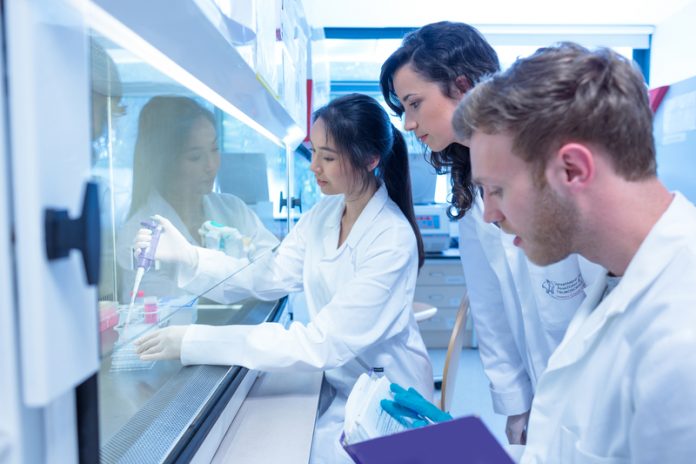The Federal Ministry of Education and Research details how their Internationalisation Strategy aims to help meet global challenges by working together
International cooperation in education, science and research is more important today than ever before: National research and innovation systems need to be open if they are to remain competitive. We can only make effective use of our knowledge and the existing potential for innovation if we work together in transnational exchanges. At the same time, we also need international cooperation to respond to the global problems of our time. The most pressing challenges facing humanity, such as climate change or food security, do not stop at national borders. Sustainable solutions can only be found if the countries of the world join forces.
Against this backdrop, the German Federal Government adopted the “Strategy for the Internationalisation of Education, Science and Research” in February 2017. This Strategy is aimed at strengthening Germany as a location for research and innovation and empowering Germany to assume responsibility at the global level.
A well connected Europe for research
Germany is already well connected internationally: The number of foreign researchers at German higher education institutions soared by about 84 % between 2006 and 2014. Germany is also an attractive destination for students from abroad: It ranks fifth in the list of the most popular host countries worldwide, behind the US, the UK, Australia and France. 320,000 foreign students were studying at German higher education institutions in 2015. This number is set to rise to 350,000 by 2020.
By the same token, more and more German researchers and students are going abroad and an increasing number of academic publications from Germany – around 50% – are now being written in cross-border cooperation. Germany’s Federal Government wants to continue to actively shape this development: Foreign students and researchers who have studied and taught in Germany and Germans who have studied and taught in other countries are bridge builders for the future. The Federal Government already carved out its first comprehensive strategic framework for international cooperation in science and research in 2008. The new Internationalisation Strategy, which was introduced in 2017, follows up on this while taking new trends and challenges into account. These include current migratory movements, the digital revolution, and the development of the European Research Area (ERA) and the formation of new centres for innovation outside of the established science locations.
Germany is open to the World
With its Internationalisation Strategy, the Federal Government is sending a strong message that Germany is open to the world and taking a clear stance against the isolationist tendencies that have become apparent in a number of places. Rising budgetary allocations show that Germany is doing more than merely paying lip service to international cooperation: The Federal Ministry of Education and Research has increased its annual funding for international cooperation from €567m in 2009 to over €800m in 2015.
The Internationalisation Strategy defines 5 key objectives: Strengthening excellence through worldwide cooperation: The Federal Government is taking measures to further consolidate Germany’s position as an attractive destination for students and researchers. At the same time, they are continuing to remove barriers to the international mobility of scientists. Europe will remain a central point of reference in all of these efforts. Developing Germany’s strength in innovation on the international stage: As a location for high-tech activities, it is essential for Germany to be an integrated part of global knowledge flows and value chains. That is why the Federal Government is funding international networking activities, particularly those involving small and medium-sized enterprises. They are also working towards enhancing the central framework conditions for cooperation, for example with regard to intellectual property rights.
Internationalising vocational training and qualification: The Federal Government is taking action to further strengthen cooperation with industrialised and emerging countries in vocational education and training (VET), foster the mobility of apprentices and facilitate the recognition of qualifications gained abroad. Fighting youth unemployment in Europe continues to be a major objective.
Working with emerging and developing countries to shape the global knowledge-based society: A large number of these countries are developing into up-and coming locations for science and are becoming increasingly relevant partners for cooperation. The Federal Government is expanding existing collaboration schemes and setting up new partnerships with these countries. The digital revolution offers significant opportunities for providing broader access to knowledge in this context.
Overcoming global challenges together: Education and research are creating the knowledge required for evidence- based policy-making and the development of sustainable solutions to global challenges. The government is stepping up its efforts to improve networking among relevant stakeholders at the European and international level.
“International cooperation: networked and innovative” is the guiding principle of this strategy: Stronger coordination on the part of stakeholders will improve the coherence of the measures taken and the resulting synergy effects will enhance the quality and impact of international cooperation.
In a globalised world, internationalising education, science and research is key to protecting the quality of life and health and prosperity in the long term. The Federal Government is responding to this challenge with its Internationalisation Strategy, which provides a framework for Germany’s development as an open, sustainable and responsible location for science and innovation.
Download the English version of the Internationalisation Strategy at https://www.bmbf.de/en/internationalization-strategy-2209.html.
Federal Ministry of Education and Research – Germany











